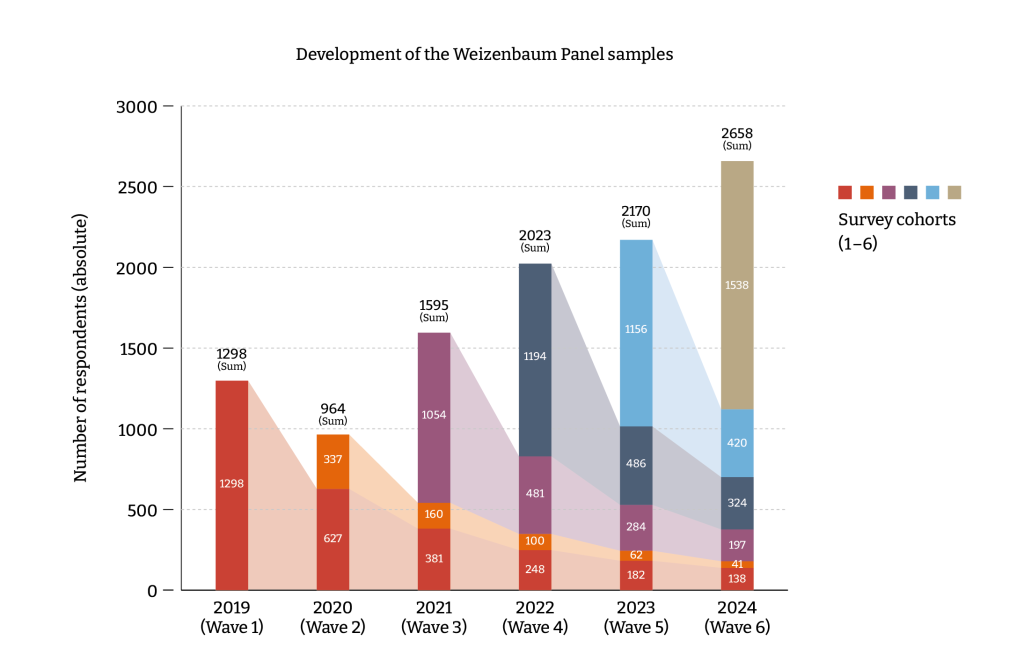The Weizenbaum Panel on Political Participation in Germany is a cooperation between the Weizenbaum Institute and the Freie Universität Berlin. Since the first wave in 2019, every year a representative sample of German citizens participate in our telephone survey to answer questions about their social and political engagement, particularly on the Internet. Due to the conception as a rolling panel, the same people are interviewed over several years.
Objective
The goal of the Weizenbaum Panel is to gain a representative picture of political communication and participation in Germany. In particular, the study investigates how citizens inform themselves about political topics, how and where they discuss them, and under which conditions they become politically engaged. Special attention is paid to the role of the Internet and social media. Finally, the long-term perspective is of crucial importance: the annual repetition of the survey allows for observation and analysis over time.
Survey Method
The Weizenbaum Panel data is collected by means of computer-assisted telephone interviews (CATI). An extensive questionnaire with about 100 predominantly closed questions serves as a foundation – among other things, the questions refer to media usage (especially Internet and social media), political interest and orientation, understandings of and satisfaction with democracy, citizenship norms and political participation as well as civic interventions with respect to hate speech and mis- and disinformation on the Internet. The survey is conducted by trained interviewers at the CATI studio at Freie Universität Berlin.
Population and Sampling
The aim of the study is to repeatedly survey the same people over several years. In order to counteract panel mortality, the study is designed as a rolling panel and has therefore consisted of both a panel sample and a growth sample since the second wave. The population of each survey of the Weizenbaum Panel covers the German-speaking residential population of Germany over 16 years. To ensure a sampling procedure that is representative of the German population, we work with a dual-frame approach. The GESIS – Leibniz-Institut für Sozialwissenschaften provides the telephone numbers according to the “Gabler-Häder-Design.” Correspondingly, the telephone numbers are generated at random. All legal provisions regarding data privacy as well as the common standards and guidelines of empirical social research are adhered to (e.g., the “guidelines for telephone surveys” from ADM).
